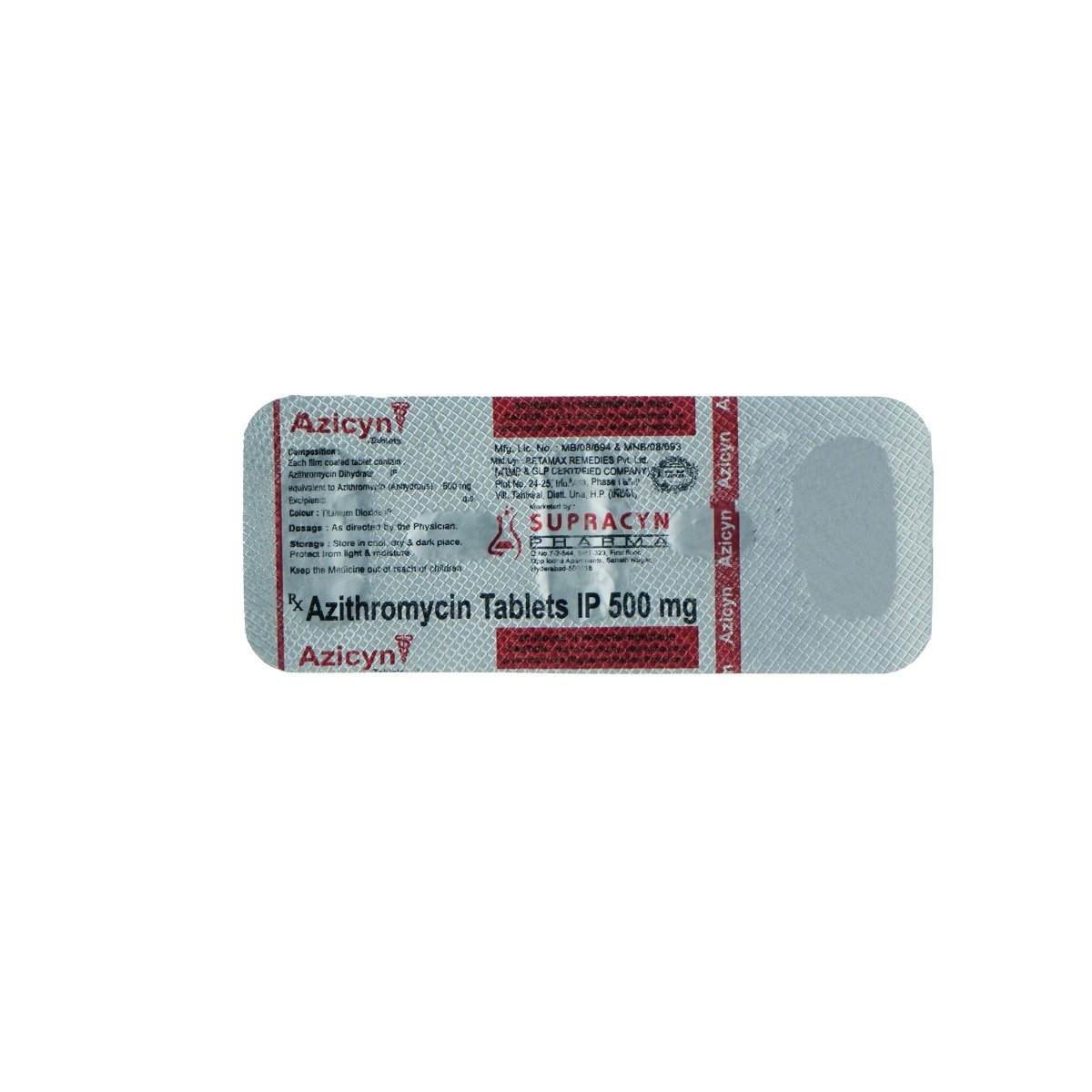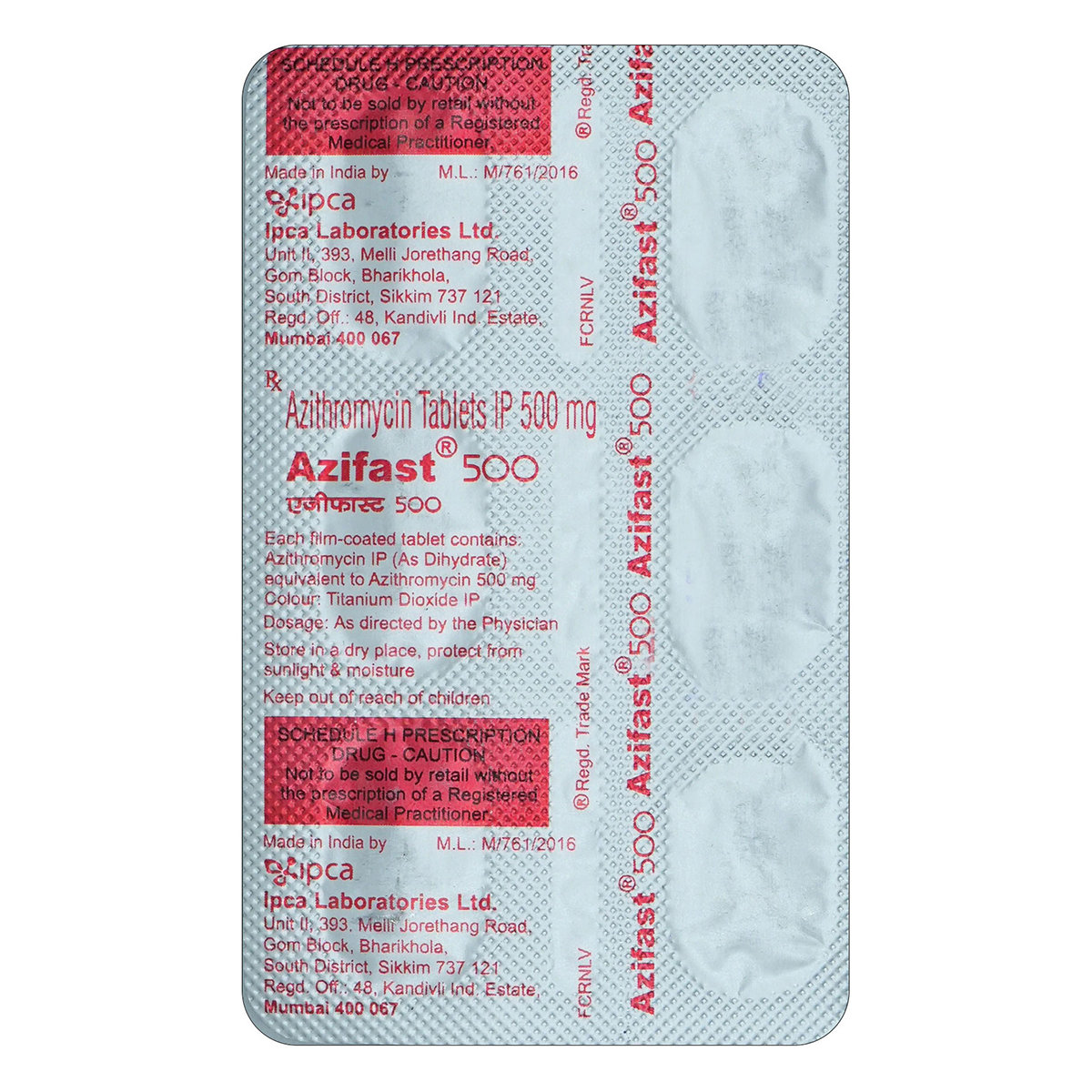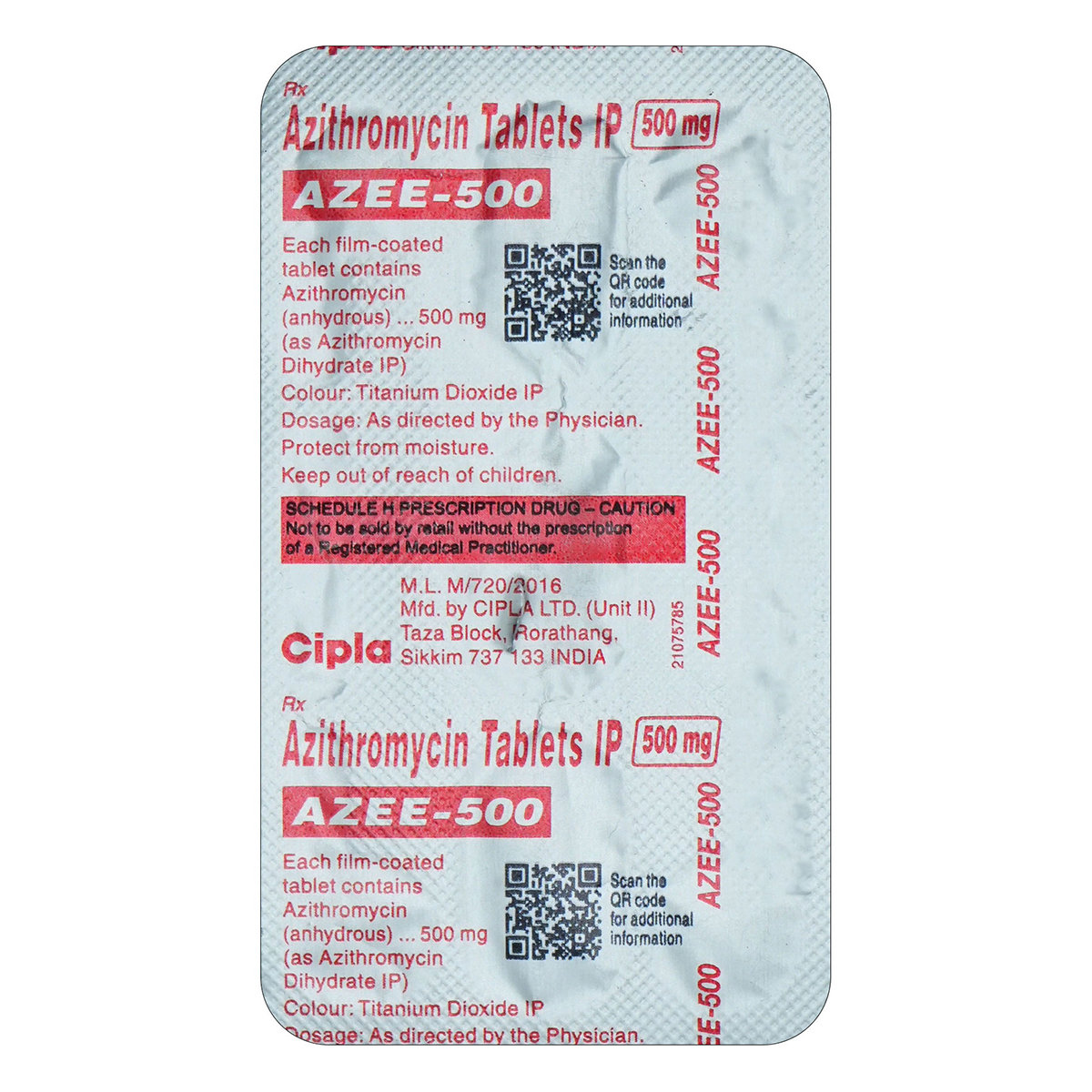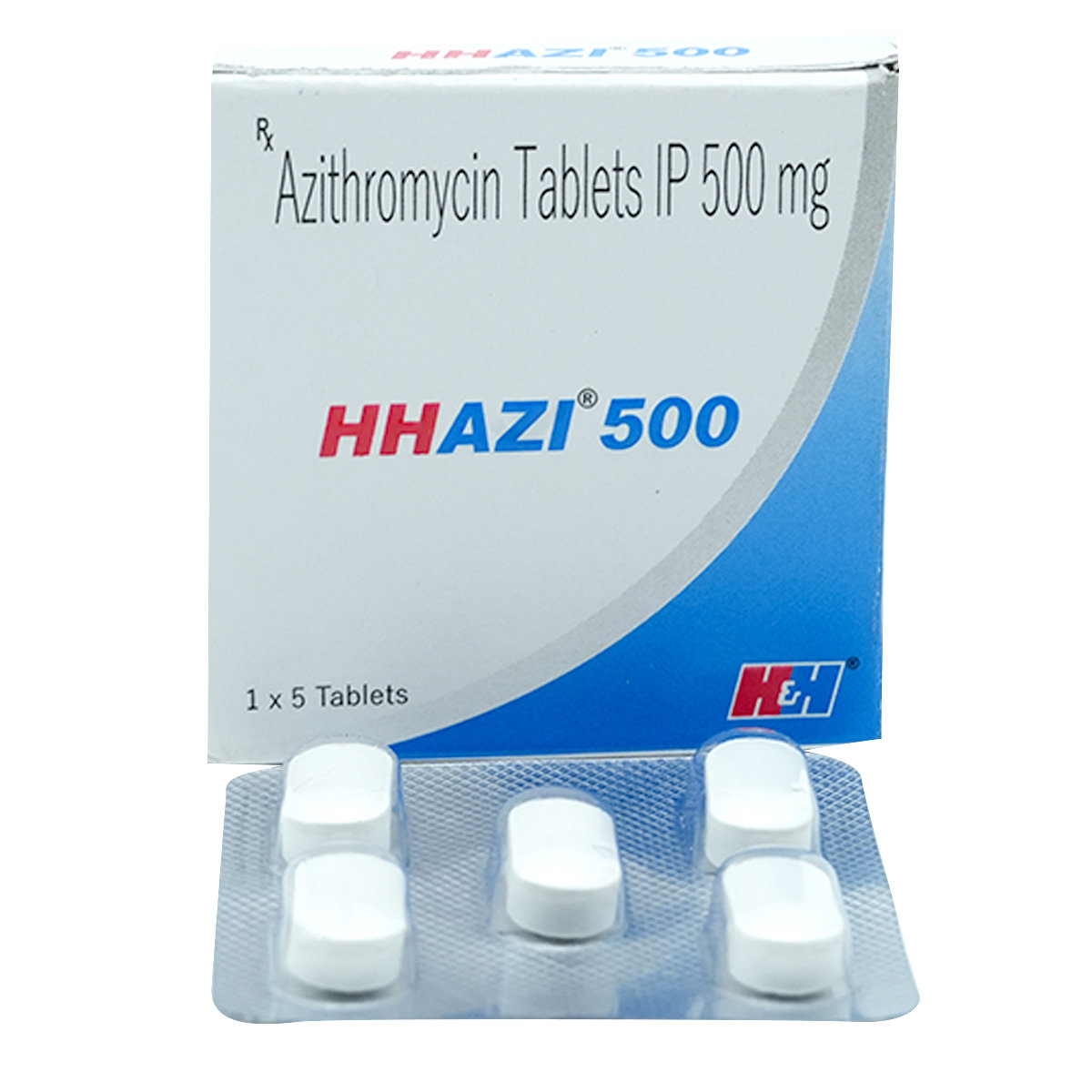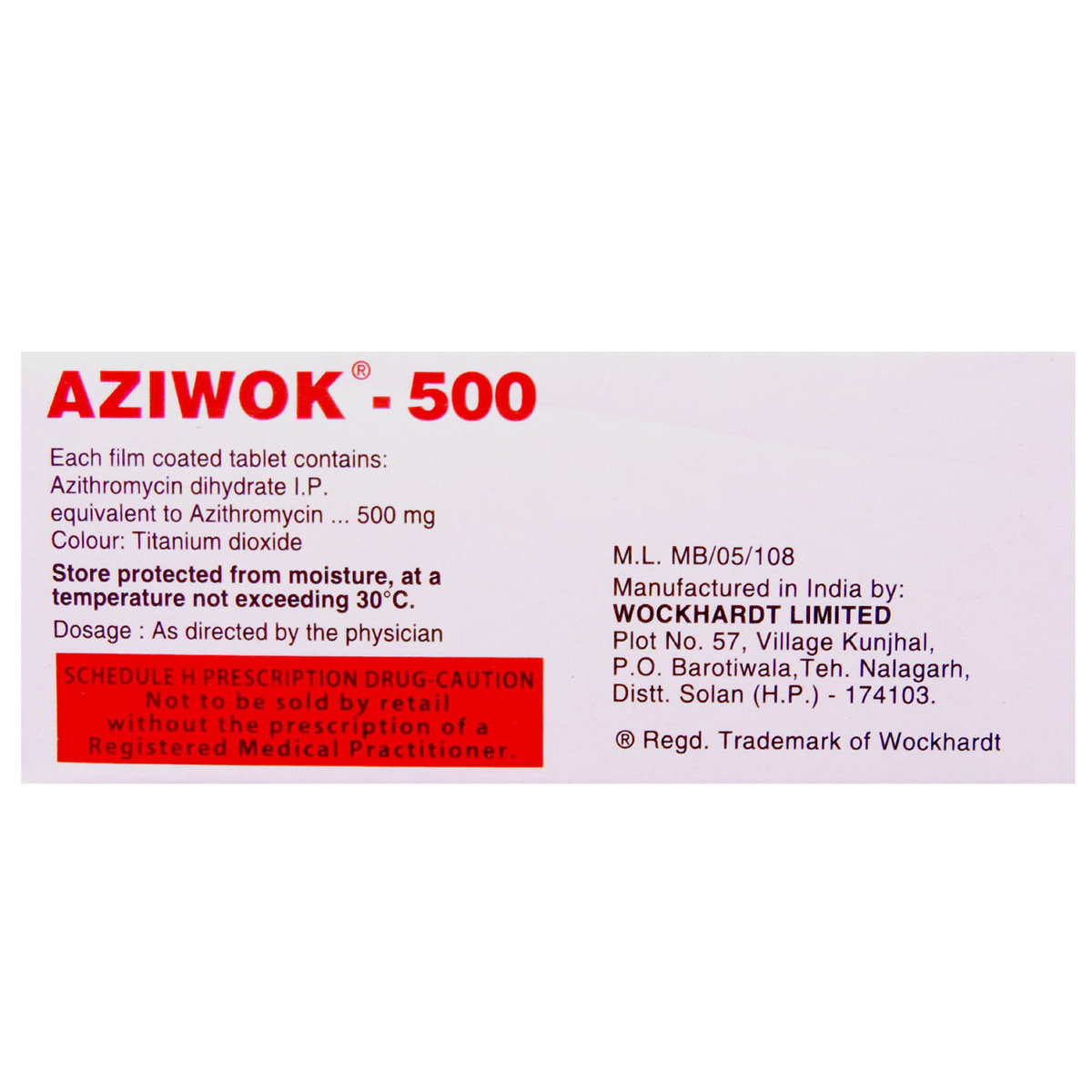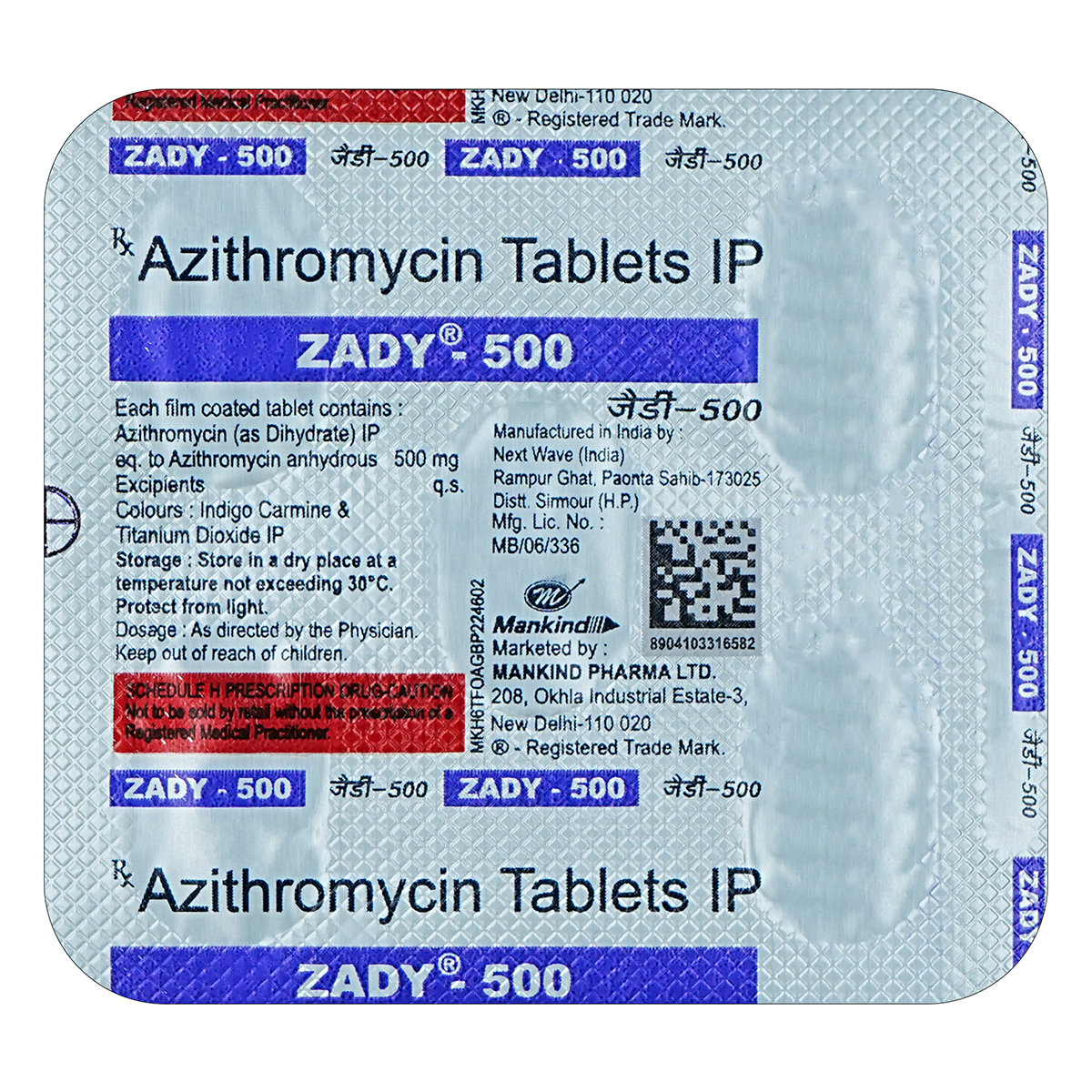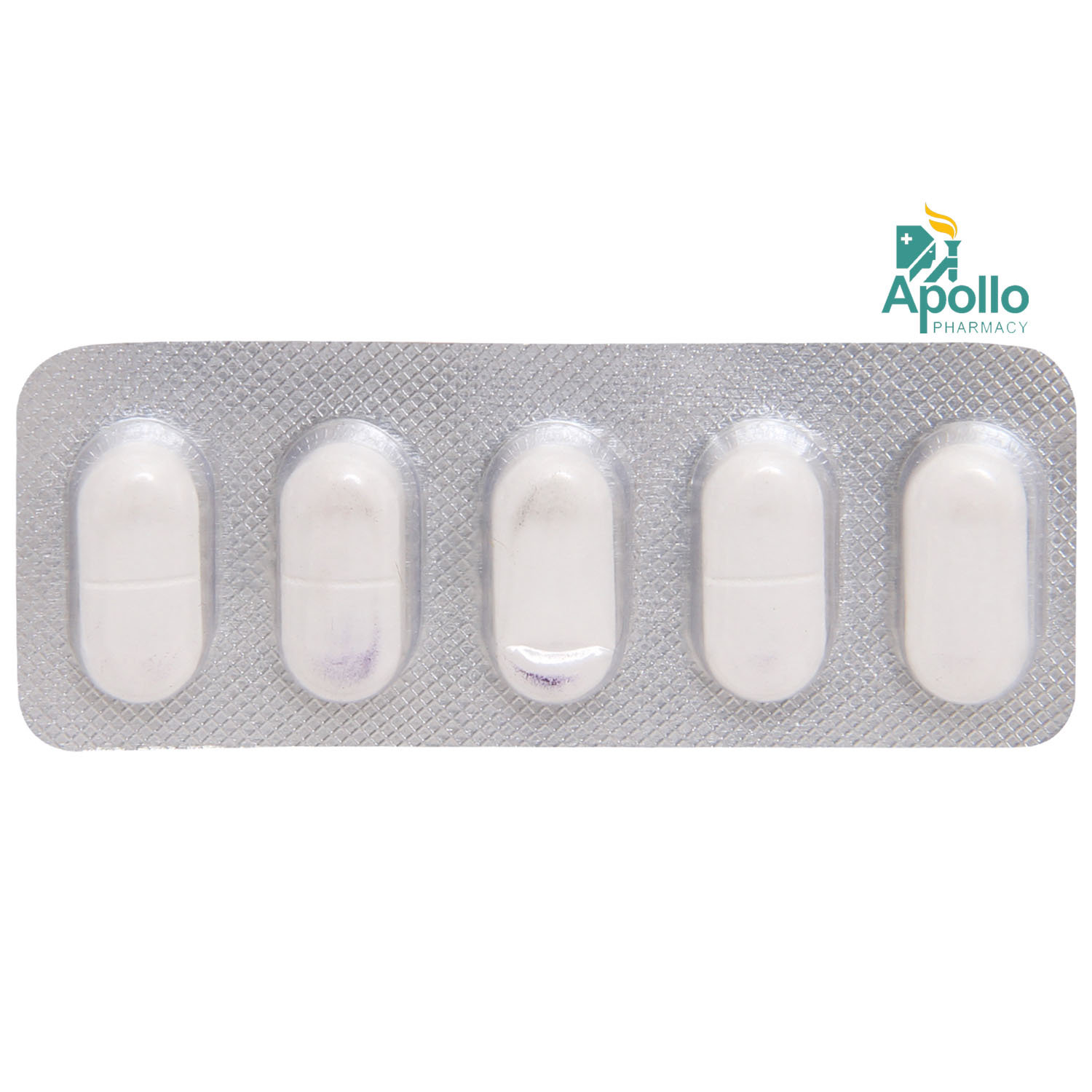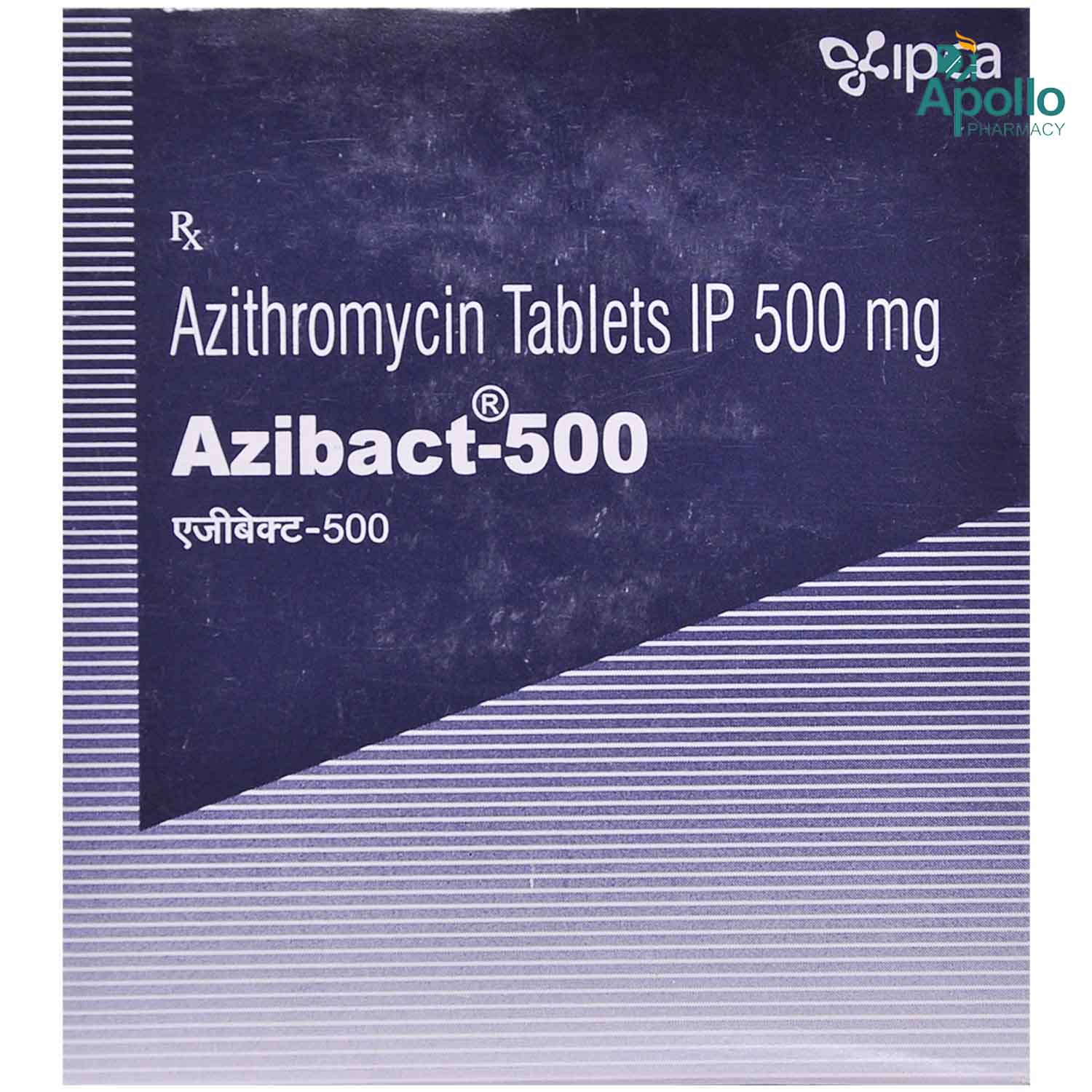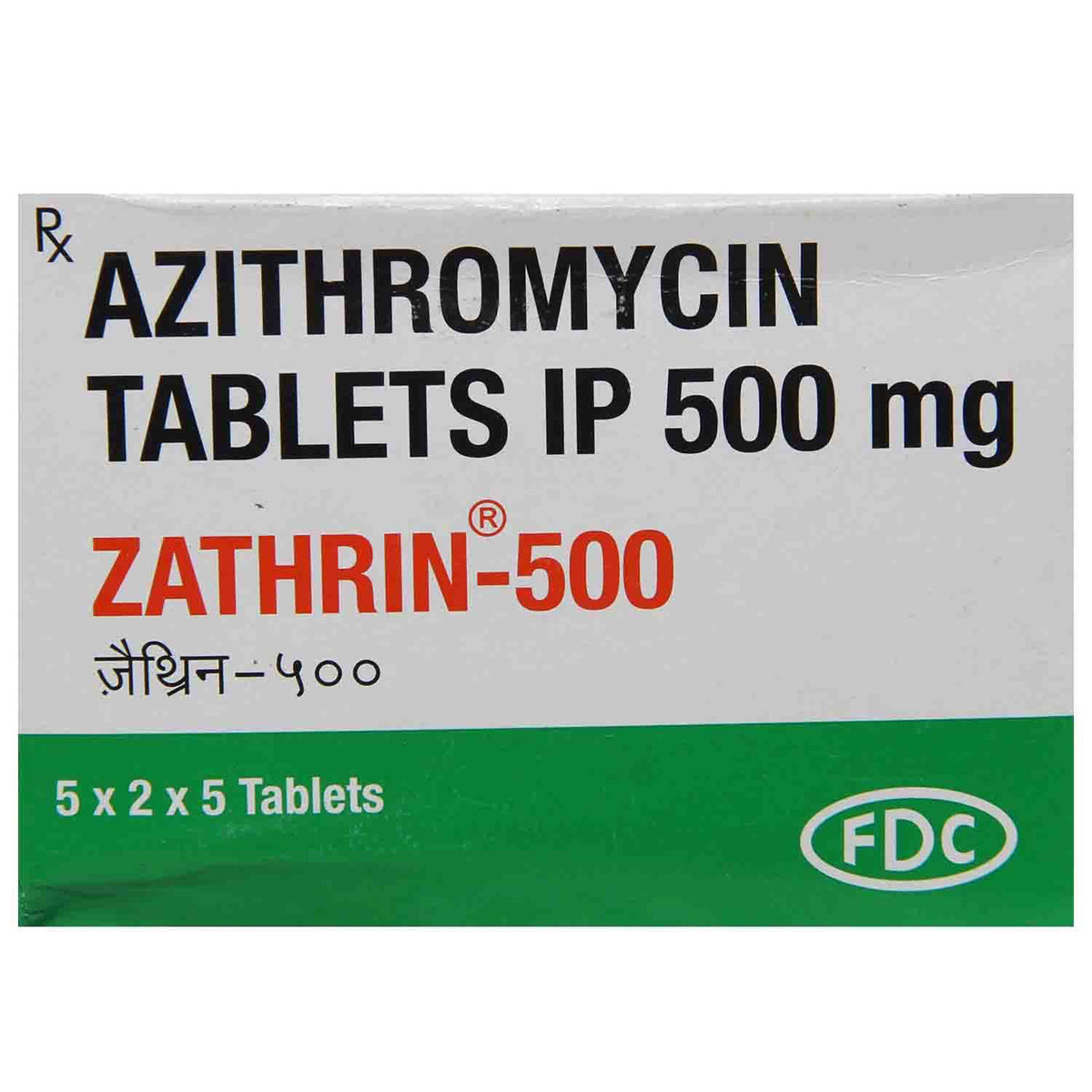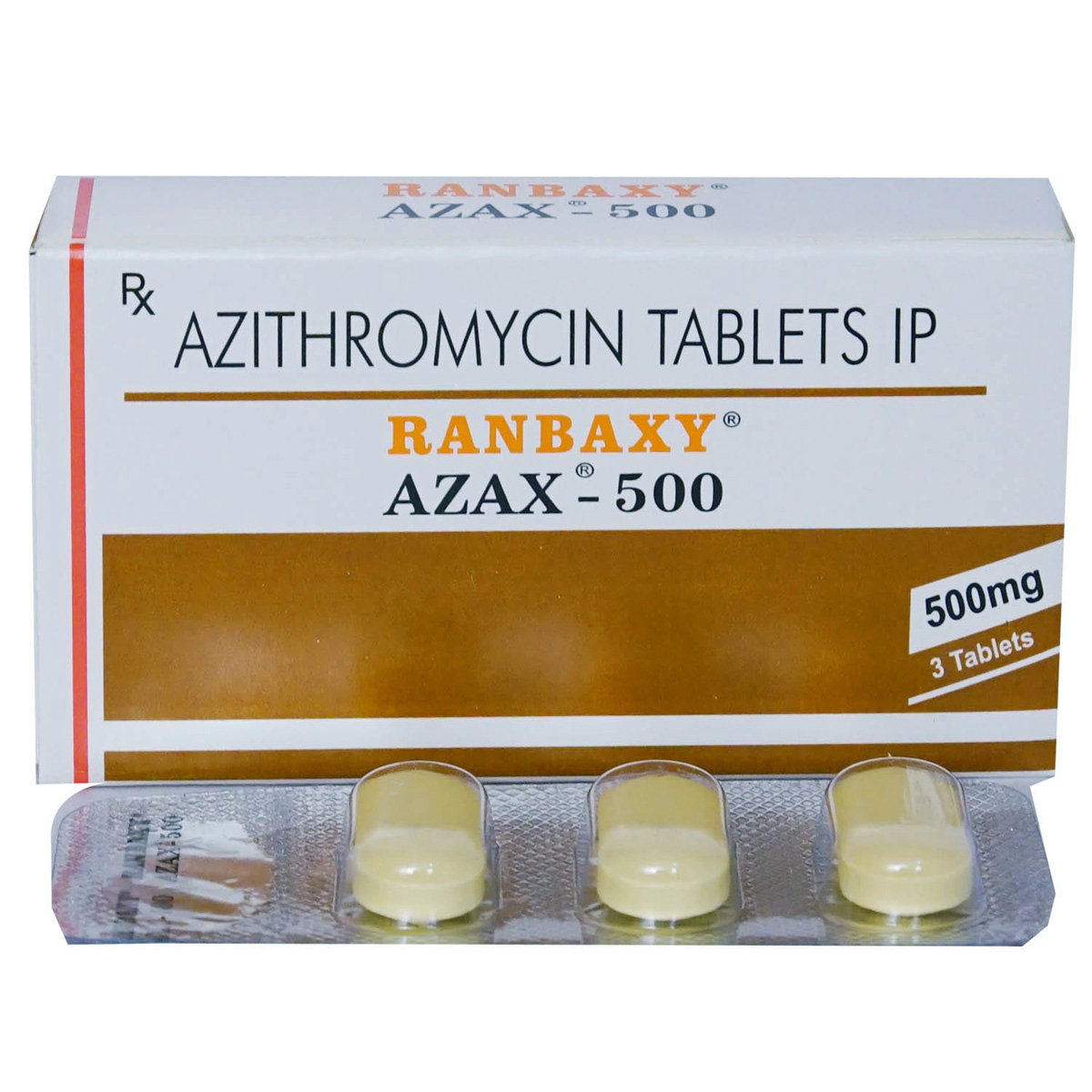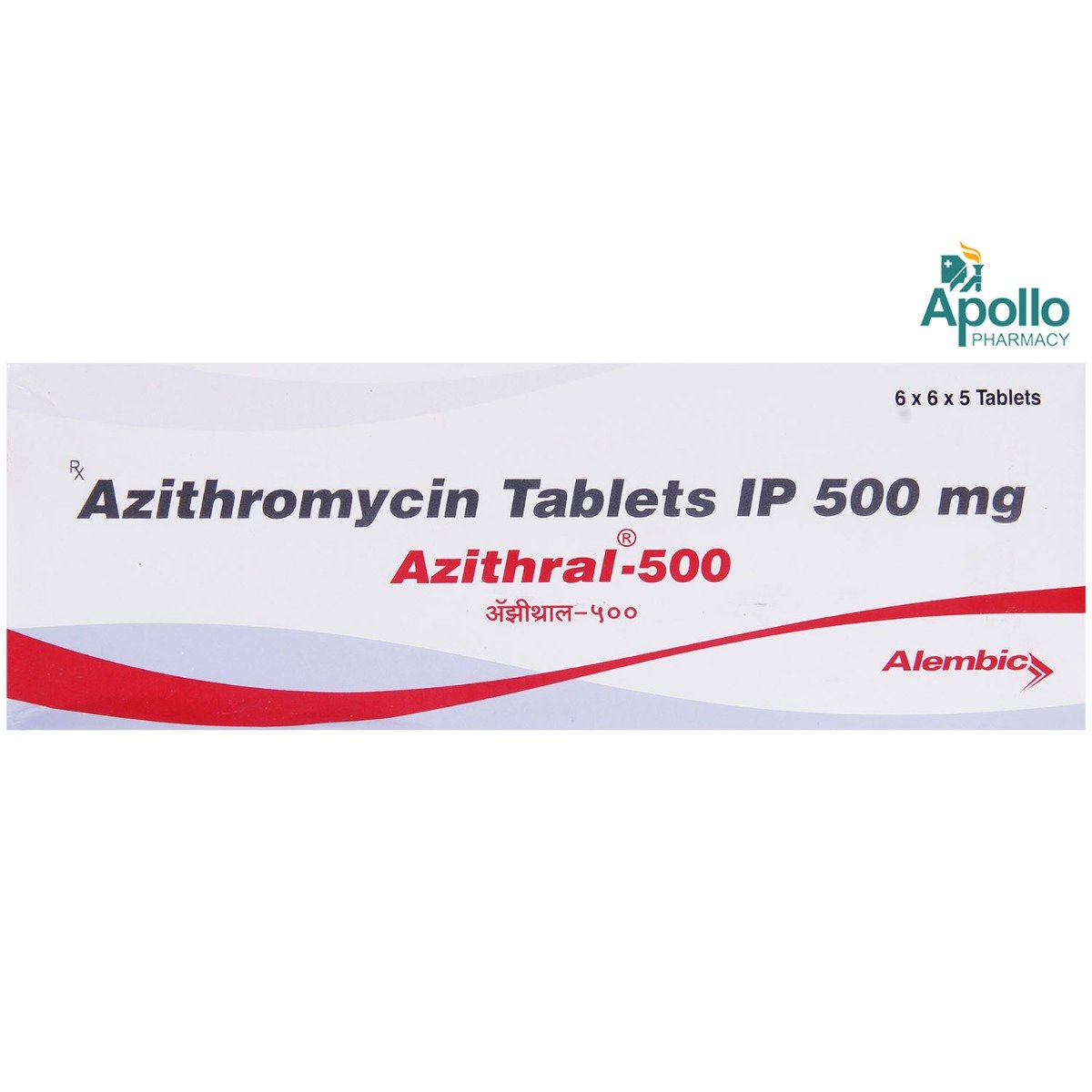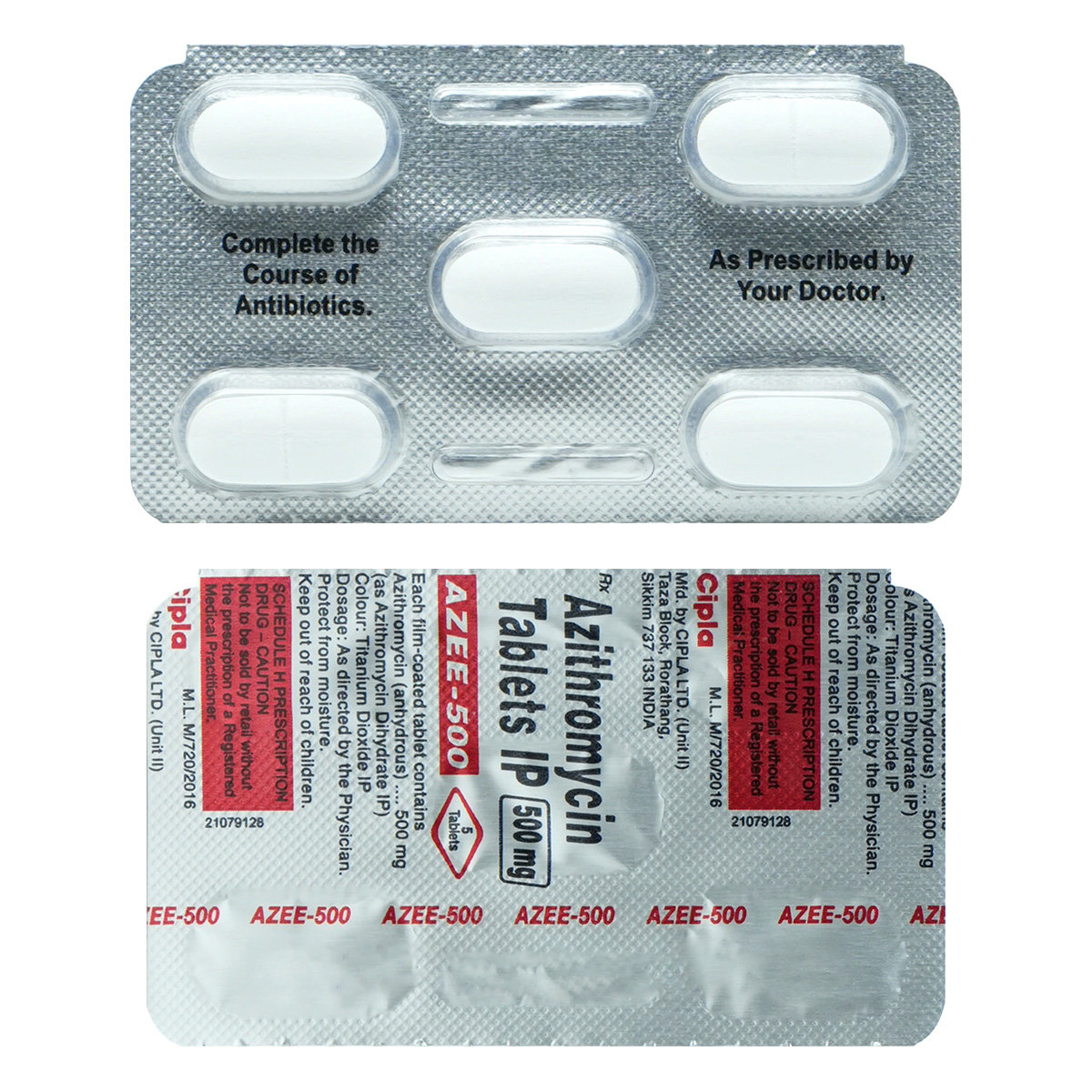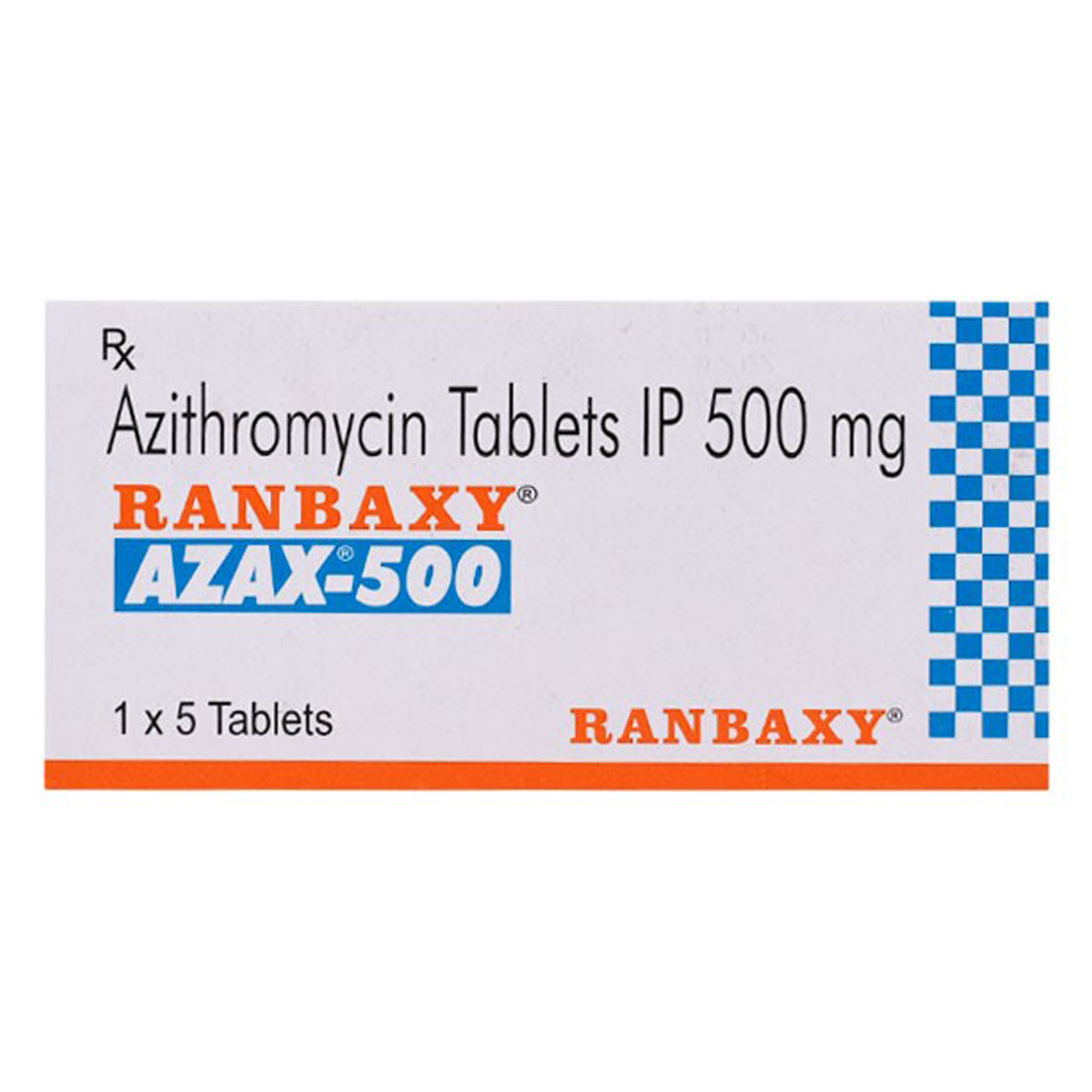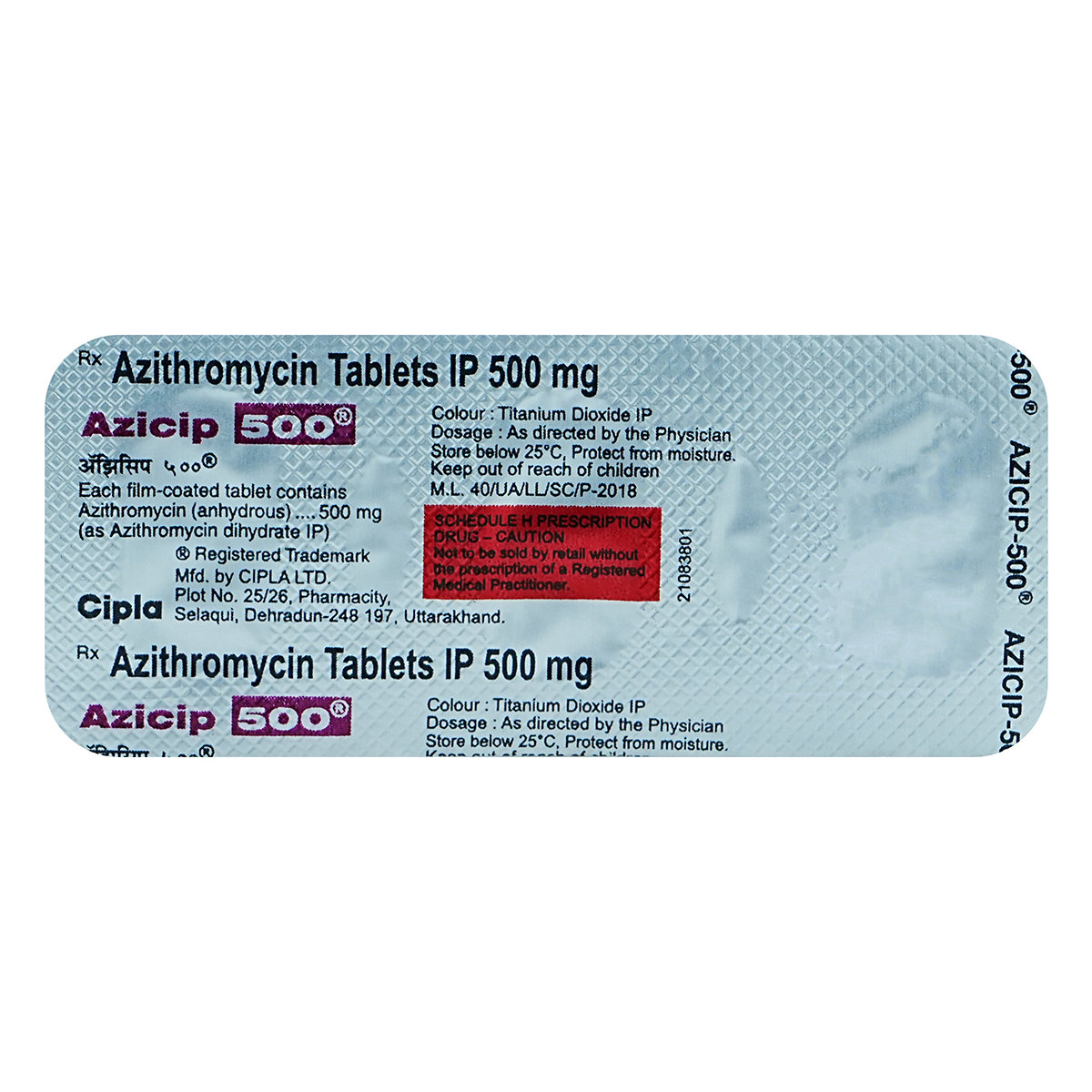Azicyn 500 Tablet 3's
MRP ₹74
(Inclusive of all Taxes)
₹11.1 Cashback (15%)
Provide Delivery Location
Online payment accepted
 Prescription drug
Prescription drugWhats That
Composition :
Manufacturer/Marketer :
Consume Type :
Expires on or after :
Return Policy :
NPPA :
About Azicyn 500 Tablet
Azicyn 500 Tablet belongs to a group of medicines known as macrolide antibiotics. It is used to treat various respiratory system bacterial infections (like pneumonia, bronchitis, tonsillitis, pharyngitis and sinusitis), skin infections (like acne and rosacea), ear infections, and sexually transmitted infections. A bacterial infection is a condition in which bacteria grow in the body and cause infection. It can target any body part and multiple very quickly.
Azicyn 500 Tablet slows the growth or sometimes kills the harmful bacteria by preventing the production of proteins required by the bacteria for its survival. Azicyn 500 Tablet does not treat a viral infection like flu or a common cold.
Azicyn 500 Tablet should only be taken if advised by your doctor. It can be taken with or without food but should be consumed at a fixed time for the best results. Azicyn 500 Tablet should not be consumed more than the recommended dose, to avoid unpleasant side effects. And also, the course should be completed even if you feel better as it is an antibiotic. Some common side effects of Azicyn 500 Tablet are diarrhoea, nausea, vomiting, and indigestion. An allergic reaction such as rashes, itching, swelling, and shortness of breath can occur in rare cases. Please consult your doctor if an allergic reaction becomes severe.
Tell your doctor if you have liver problems, muscle problems (myasthenia gravis), heart rhythm disorder (arrhythmia), or electrolyte imbalance (low potassium or magnesium level). You should consult a doctor if you have had diarrhoea for more than four days. However, do not take any anti-diarrheal medicine until your doctor tells you. It is unknown whether Azicyn 500 Tablet harms the baby or passes into breast milk in pregnancy and breastfeeding state. Contacting a doctor before using Azicyn 500 Tablet during pregnancy and while breastfeeding is better. Avoid too much exposure to sunlight as Azicyn 500 Tablet can make your skin sensitive to sunburn. In this case, it is advisable to wear protective clothing or apply sunscreen (SPF 30 or higher) when you are outdoors.
Uses of Azicyn 500 Tablet
Azithromycin is a macrolide antibiotic that treats various bacterial infections, such as:
- 1. Treat Bacterial Infections
- Respiratory tract infections (e.g. bronchitis, pneumonia)
- Throat infections (e.g. tonsillitis, pharyngitis)
- Ear infections (e.g. otitis media)
- Skin and soft tissue infection
- Sexually transmitted infections (e.g. chlamydia)
- Typhoid fever (in some cases)
Directions for Use
- Take Azicyn 500 Tablet as prescribed by your physician.
- It can be taken with or without food. .
- Swallow the medicine as a whole with a glass of medicine. Do not chew or crush or break the tablet.
Key Benefits
Azicyn 500 Tablet slows the growth or sometimes kills the harmful bacteria by preventing the production of proteins required by the bacteria for its survival. It prevents and treats bacterial infections like throat and sinus infections, chest infections (like bronchitis and pneumonia), ear infections, mouth and dental infections, eye infections, skin and tissue infections (like acne), and stomach and intestinal infections. It is better tolerated and has more effective tissue penetration than other similar antibiotics like erythromycin. Doctors prescribe Azicyn 500 Tablet for people who are intolerant to penicillin antibiotics. Besides this, it also helps prevent infection following burns, surgery or dental procedure, sexually transmitted infections, bone infections or scarlet fever (bacterial illness with strep throat).
Storage
- Inform Your Doctor: Notify your doctor immediately about your diarrhoea symptoms. This allows them to adjust your medication or provide guidance on managing side effects.
- Stay Hydrated: Drink plenty of fluids to replace lost water and electrolytes. Choose water, clear broth, and electrolyte-rich drinks. Avoid carbonated or caffeinated beverages to effectively rehydrate your body.
- Follow a Bland Diet: Eat easy-to-digest foods to help firm up your stool and settle your stomach. Try incorporating bananas, rice, applesauce, toast, plain crackers, and boiled vegetables into your diet.
- Avoid Trigger Foods: Steer clear of foods that can worsen diarrhoea, such as spicy, fatty, or greasy foods, high-fibre foods, and dairy products (especially if you're lactose intolerant).
- Practice Good Hygiene: Maintain good hygiene to prevent the spread of infection. To stay healthy, wash your hands frequently, clean and disinfect surfaces regularly, and avoid exchanging personal belongings with others.
- Take Anti-Diarrheal Medications: If your doctor advises, anti-diarrheal medications such as loperamide might help manage diarrhoea symptoms. Always follow your doctor's directions.
- Keep track of your diarrhoea symptoms. If they don't get better or worse or are accompanied by severe stomach pain, blood, or dehydration signs (like extreme thirst or dark urine), seek medical help.
- Inform your doctor about the nausea and discuss possible alternatives to the medication or adjustments to the dosage.
- Divide your daily food intake into smaller, more frequent meals to reduce nausea.
- Opt for bland, easily digestible foods like crackers, toast, plain rice, bananas, and applesauce.
- Avoid certain foods that can trigger nausea, such as fatty, greasy, spicy, and smelly foods.
- Drink plenty of fluids, such as water, clear broth, or electrolyte-rich beverages like coconut water or sports drinks.
- Use ginger (tea, ale, or candies) to help relieve nausea.
- Get adequate rest and also avoid strenuous activities that can worsen nausea.
- Talk to your doctor about taking anti-nausea medication if your nausea is severe.
- Record when your nausea occurs, what triggers it, and what provides relief to help you identify patterns and manage your symptoms more effectively.
- Drink water or other clear fluids.
- To prevent worsening of pain, limit intake of tea, coffee, or alcohol.
- Include bland foods like rice, toast, crackers, and rice in your diet.
- Avoid lying down immediately after eating as it may cause indigestion or heartburn.
- Avoid acidic and spicy food as it may cause indigestion.
- Inform Your Doctor: Notify your doctor immediately about your diarrhoea symptoms. This allows them to adjust your medication or provide guidance on managing side effects.
- Stay Hydrated: Drink plenty of fluids to replace lost water and electrolytes. Choose water, clear broth, and electrolyte-rich drinks. Avoid carbonated or caffeinated beverages to effectively rehydrate your body.
- Follow a Bland Diet: Eat easy-to-digest foods to help firm up your stool and settle your stomach. Try incorporating bananas, rice, applesauce, toast, plain crackers, and boiled vegetables into your diet.
- Avoid Trigger Foods: Steer clear of foods that can worsen diarrhoea, such as spicy, fatty, or greasy foods, high-fibre foods, and dairy products (especially if you're lactose intolerant).
- Practice Good Hygiene: Maintain good hygiene to prevent the spread of infection. To stay healthy, wash your hands frequently, clean and disinfect surfaces regularly, and avoid exchanging personal belongings with others.
- Take Anti-Diarrheal Medications: If your doctor advises, anti-diarrheal medications such as loperamide might help manage diarrhoea symptoms. Always follow your doctor's directions.
- Keep track of your diarrhoea symptoms. If they don't get better or worse or are accompanied by severe stomach pain, blood, or dehydration signs (like extreme thirst or dark urine), seek medical help.
- Tell your doctor about your GAS symptoms. They may change your medication regimen or prescribe additional drugs to help you manage them.
- To manage GAS symptoms, eat a balanced diet of fibre, vegetables, and fruits.
- Drink enough water throughout the day to avoid constipation and treat GAS symptoms.
- Regular exercise like yoga and walking may help stimulate digestion and alleviate GAS symptoms.
- Take probiotics only if your doctor advises, as they may help alleviate GAS symptoms by promoting gut health.
- Take medication for GAS symptoms only if your doctor advises, as certain medications can interact with your existing prescriptions or worsen symptoms.
- If symptoms persist, worsen, or are accompanied by severe abdominal pain, vomiting, or bleeding, seek immediate medical attention.
- Avoid taking raw fruits, nuts and vegetables.
- Do not share your personal things with others like toothbrushes.
- Clean the wounds and cuts using soap and water.
- Wash your hands thoroughly and frequently and maintain hygiene.
- Get a good quality of sleep.
- Preventing Vomiting (Before it Happens)
- Take medication exactly as prescribed by your doctor. This can help minimize side effects, including vomiting.
- Having a small meal before taking your medication can help reduce nausea and vomiting.
- Talk to your doctor about taking anti-nausea medication along with your prescribed medication.
- Managing Vomiting (If it Happens)
- Try taking ginger in the form of tea, ale, or candy to help alleviate nausea and vomiting.
- What to Do if Vomiting Persists
- Consult your doctor if vomiting continues or worsens, consult the doctor for guidance on adjusting your medication or additional treatment.
Drug Warnings
Tell your doctor if you have liver problems (jaundice), muscle problems (myasthenia gravis), heart rhythm disorder (arrhythmia), or electrolyte imbalance (low potassium or magnesium level). In rare cases, the use of Azicyn 500 Tablet can cause diarrhoea, so if you have watery or bloody diarrhoea, stop taking Azicyn 500 Tablet and call your doctor. However, do not take any anti-diarrheal medicine until your doctor tells you. It is unknown whether Azicyn 500 Tablet harms the baby during pregnancy. Consult your doctor if you are pregnant, planning for pregnancy or breastfeeding before using Azicyn 500 Tablet. Do not take Azicyn 500 Tablet if allergic to azithromycin or other macrolide antibiotics. Inform the doctor if you are using cholesterol-lowering drugs (statins like simvastatin, lovastatin etc.), anti-gout or anti-arthritis drugs (colchicine) and medicine for treating overactive bladder (tolterodine). Azicyn 500 Tablet is not recommended for the patients with pneumonia who are judged to be inappropriate for oral therapy due to moderate to severe illness or risk factors.
Drug-Drug Interactions
Drug-Drug Interactions
Login/Sign Up
Co-administration of Azicyn 500 Tablet with Ziprasidone can increase the risk of irregular heart rhythm.
How to manage the interaction:
Although there is an interaction between Ziprasidone and Azicyn 500 Tablet but can be taken together if prescribed by a doctor. Contact a doctor immediately if you experience sudden dizziness, lightheadedness, fainting, shortness of breath. Do not discontinue any medications without consulting a doctor.
Taking Azicyn 500 Tablet with ribociclib increases the risk of an abnormal heart rhythm.
How to manage the interaction:
Although administration of Azicyn 500 Tablet alongside ribociclib can result in an interaction, it can be taken if a doctor has advised it. However, if you experience sudden dizziness, lightheadedness, fainting, breathing difficulty, or rapid heartbeat, consult the doctor immediately. Do not stop any medications without a doctor's advice.
Azicyn 500 Tablet increases the levels of protamine in the blood, which may increase its effects.
How to manage the interaction:
Although taking Protamine and Azicyn 500 Tablet together may cause an interaction, it can be taken if a doctor has suggested it. Do not discontinue any medications without consulting a doctor.
Taking Azicyn 500 Tablet with iloperidone increases the risk of an abnormal heart rhythm.
How to manage the interaction:
Though administration of Azicyn 500 Tablet alongside iloperidone can result in an interaction, it can be taken if a doctor has advised it. However, if you experience sudden dizziness, lightheadedness, fainting, shortness of breath, or rapid heartbeat, get medical treatment immediately. Do not discontinue any medications without consulting a doctor.
Taking Azicyn 500 Tablet with bedaquiline may increase the risk of an abnormal heart rhythm.
How to manage the interaction:
Although using Azicyn 500 Tablet alongside bedaquiline can result in an interaction, it can be taken if a doctor has advised it. However, if you experience sudden dizziness, lightheadedness, fainting, breathing difficulty, or rapid heartbeat, consult the doctor immediately. Do not stop any medications without a doctor's advice.
Taking Azicyn 500 Tablet with Moxifloxacin increases the risk of an abnormal heart rhythm.
How to manage the interaction:
Although administration of Azicyn 500 Tablet alongside Moxifloxacin can result in an interaction, it can be taken if a doctor has advised it. However, if you experience dizziness, breathing difficulty, or rapid heartbeat, consult the doctor immediately. Do not stop any medications without a doctor's advice.
Coadministration of Azicyn 500 Tablet with nilotinib can increase the risk or severity of irregular heart rhythms. The risk increases in patients with a history of heart illness or electrolyte imbalance.
How to manage the interaction:
Although administration of Azicyn 500 Tablet alongside nilotinib can result in an interaction, it can be taken if a doctor has advised it. However, if you experience sudden dizziness, breathing difficulty, or rapid heartbeat, consult the doctor immediately. Do not stop any medications without a doctor's advice.
Taking Azicyn 500 Tablet with thioridazine increases the risk of an abnormal heart rhythm.
How to manage the interaction:
Although administration of Azicyn 500 Tablet alongside thioridazine can result in an interaction, it can be taken if a doctor has advised it. However, if you experience abrupt dizziness, lightheadedness, fainting, shortness of breath, or rapid heartbeat, get medical help immediately. Do not discontinue any medications without consulting a doctor.
Taking Azicyn 500 Tablet with hydroxychloroquine increases the risk of an abnormal heart rhythm.
How to manage the interaction:
Though administration of Azicyn 500 Tablet alongside hydroxychloroquine can result in an interaction, it can be taken if a doctor has advised it. However, if you experience sudden dizziness, lightheadedness, fainting, breathing difficulty, or rapid heartbeat, consult the doctor immediately. Do not stop any medications without a doctor's advice.
Taking Azicyn 500 Tablet with gatifloxacin may increase the risk of an abnormal heart rhythm.
How to manage the interaction:
Though administration of Azicyn 500 Tablet alongside gatifloxacin can result in an interaction, it can be taken if a doctor has advised it. However, if you experience sudden dizziness, lightheadedness, fainting, breathing difficulty, or rapid heartbeat, consult the doctor immediately. Do not stop any medications without a doctor's advice.
Drug-Food Interactions
Drug-Food Interactions
Login/Sign Up
Diet & Lifestyle Advise
It would be best to take probiotics after taking the full course of Azicyn 500 Tablet to restore some healthy bacteria in the intestine that may have been killed. Taking probiotics after antibiotic treatment can reduce the risk of antibiotic-associated diarrhoea. Certain fermented foods like yoghurt, cheese, sauerkraut and kimchi can help restore the intestine's good bacteria.
Include more fibre-enriched food in your diet, as it can be easily digested by gut bacteria which helps stimulate their growth. Thus fibre foods may help restore healthy gut bacteria after taking a course of antibiotics. Whole grains like whole-grain bread, and brown rice, should be included in your diet.
Avoid taking too much calcium enriched foods and drinks as it might affect the working of Azicyn 500 Tablet.
Avoid intake of alcoholic beverages with Azicyn 500 Tablet as it can make you dehydrated and affect your sleep. This can make it harder for your body to aid the Azicyn 500 Tablet in fighting off infections.
Side Effects of Azicyn 500 Tablet
Diarrhoea
Feeling or being sick (nausea or vomiting)
Stomach cramps
Loss of appetite
Bloating
Indigestion
Habit Forming
Therapeutic Class
All Substitutes & Brand Comparisons
RX
Azifast 500 Tablet 6's
Ipca Laboratories Ltd
₹148
(₹22.2 per unit)
RX
Azee 500 Tablet 3's
Cipla Ltd
₹74
(₹22.2 per unit)
RX
Azikem 500 mg Tablet 3's
Abbott India Ltd
₹74
(₹22.2 per unit)
Drug-Diseases Interactions
Drug-Diseases Interactions
Login/Sign Up
FAQs
Drug-Drug Interactions Checker List
- DOMPERIDONE
- PIMOZIDE
- AMISULPRIDE
- ERGOTAMINE
- DIHYDROERGOTAMINE
- SIMVASTATIN
- TOLTERODINE
- COLCHICINE
Disease/Condition Glossary
Bacterial infection: A bacterial infection is a condition in which harmful bacteria enter, multiply, and infect our body. It can target any body part and multiple very quickly. When you get infected with bacteria, you can experience generalized symptoms like fevers, chills, and fatigue. Bacteria are of various forms comprising commonly spherical, rod, and spiral-shaped. Bacterial infections vary from minor illnesses like sore throat and ear infections to severe brain infections like meningitis and encephalitis. Few harmful bacteria that cause infections include Streptococcus, Staphylococcus, and E. coli. Anyone can become infected with a bacterial infection. But, people with weak immune systems or taking immunosuppressive medicine can make you more prone to bacterial infection.

Have a query?
Alcohol
Safe if prescribed
Azicyn 500 Tablet should not be taken until prescribed if you are taking alcohol. Keep your doctor informed if you drink alcohol.
Pregnancy
Consult your doctor
There is insufficient information available about the use of Azicyn 500 Tablet during pregnancy. Therefore you should not use Azicyn 500 Tablet during pregnancy unless explicitly advised by your doctor.
Breast Feeding
Consult your doctor
Azicyn 500 Tablet is partially passed through the mother’s milk, therefore it should not be used if you are breastfeeding.
Driving
Safe if prescribed
There are no data available about the influence of Azicyn 500 Tablet on the ability to drive or operate machines. However, Azicyn 500 Tablet may cause dizziness and seizures so make sure you are not affected before driving or operating machinery.
Liver
Consult your doctor
You should tell your doctor if you have liver problems as your doctor may need to alter the normal dose.
Kidney
Consult your doctor
You should tell your doctor if you have kidney problems as your doctor may need to alter the normal dose.
Children
Safe if prescribed
Safety and effectiveness in the treatment of patients under 6 months of age have not been established. So, it is not recommended for children less than 6 months of age. However, if the doctor has prescribed for the children more than 6 months Azicyn 500 Tablet can be used.



